This post was originally published in 2019. Here’s the new and improved version.
If you’re looking to add a side hustle to your real estate business, consider renting out tools and equipment to DIY-ers.
We’ve gotten some feedback from readers interested in learning more about this income stream since it was featured on our Top 25 Side Hustles for Realtors®. So we’re going to dig in a little deeper to see if this is the right side hustle for you.
If you’ve ever tackled your own renovation or repair, you’ve probably rented equipment to get the job done. Home Depot and Lowe’s are the go-to’s for homeowners, but they are far from ideal. The service isn’t great, and the products aren’t always in the best shape. You could provide better service and better quality tools for your customers.
As with most of our side hustles, the basic idea is simple. You keep commonly-needed tools and equipment available for homeowners to rent on an hourly, daily, or weekly basis. The homeowner pays you to rent your tools and returns them once their project is complete. You get to turn a one-time tool purchase into a recurring income.
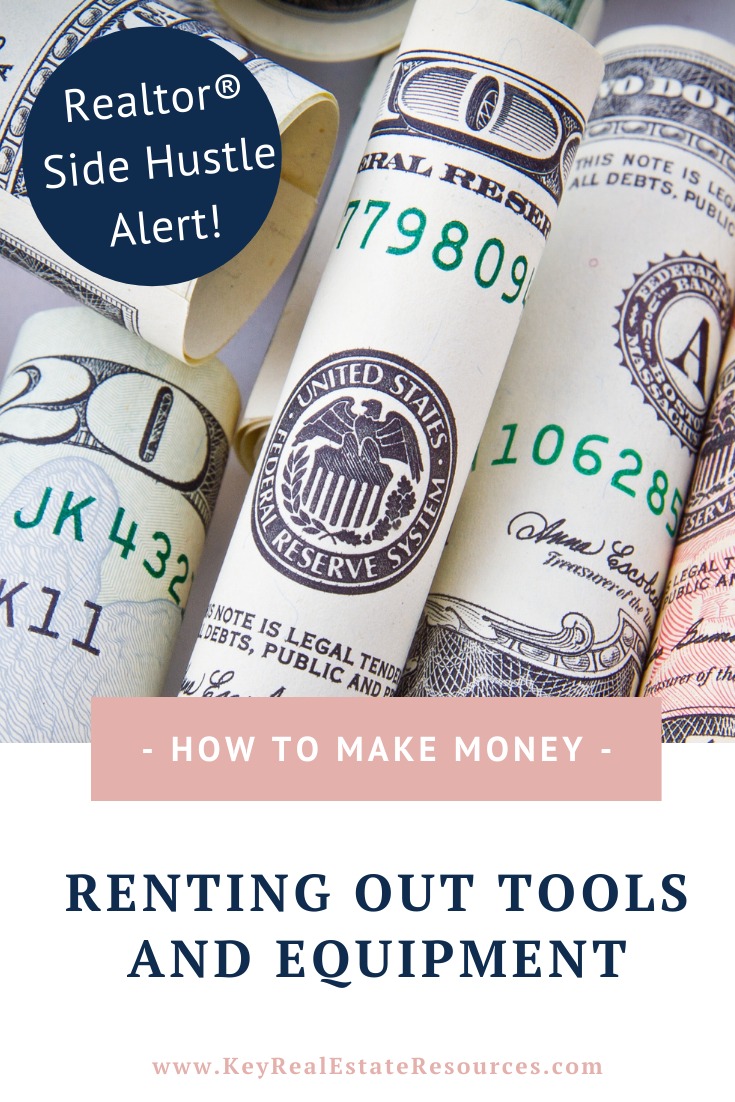
Why Tool Rental is an Ideal Side Hustle for Real Estate Professionals
Renting out tools and equipment to homeowners is a great complement to your real estate business for a few key reasons:
- You already have access to customers
Your buyer clients are the perfect customers for your new tool rental business. They need tools to tackle DIY renovations, repairs, and maintenance. First-time buyers probably don’t own many tools of their own. And they probably don’t want to spend a large amount of money to buy tools since they just spent a large amount on purchasing the home. Your seller clients may also be a good customer source. True, they probably own more tools than new buyers, but they probably don’t have everything they need to get their home market-ready. - It doesn’t take much time to run
Applying for the appropriate permits and licenses will take a little time and research upfront. And you’ll spend a little time drafting a rental contract. But with those tasks complete, your only real-time investment is meeting with customers to lend and collect the tools, inspecting and cleaning the tools after use, and promoting your business. And none of those tasks are time-intensive. - You probably already have many of the tools you need to get started
No one expects you to offer all the tools the big equipment companies do. You just need to offer the tools your customers are most likely to need. And you can always expand your product selection as you start earning a profit from renting your existing tools. So if you have your own tools and equipment in good repair, you can launch this business with very little cash.
So it might be a great fit for you. Let’s dive into the business opportunity in more detail.
5 Keys to Making Your Tool Rental Income Stream Productive
To make your new tool rental income stream successful, there are 5 key things to keep in mind.
1. Protect Yourself
Renting out tools comes with greater liability than most of the side hustles we’ve proposed here at Real Estate Side Hustles. Tools can be dangerous when used improperly, and a lot of people do a lot of stupid things with tools. You want to make sure you can’t possibly be held responsible for damages or injuries sustained while customers are using your tools.
So your first step in ensuring that your tool rental income stream is productive is to protect yourself.
And this starts with the formation of your new tool rental company.
Consider forming an LLC
Consider forming your new business as an LLC (Limited Liability Company). As the name suggests, this limits your liability. If you were to encounter a business-destroying event (like a lawsuit or bankruptcy), your business could be liquidated and lost, but no one would be able to go after your personal assets (homes, savings, or investment accounts).
Without forming an LLC, there is no difference between your personal assets and your business assets. Everything could be liquidated if your business assets weren’t enough to cover your financial obligations.
Get proper licensing and insurance
Your local area may require special permits for an equipment rental business. So make sure you do a little research into required licensing and permits for your specific city.
And make sure you’re properly insured. Contact your insurance provider to see if you need additional coverage or an additional policy for your new tool rental business.
Have a lawyer review your rental contract
Of course a large part of protecting yourself is to have a well-written rental contract that limits your liability. Explain in your rental contract that you accept no liability for any harm, damage, or injury incurred while the renter is using your tools. Your rental contract should also have a clear deposit policy. If your tools get damaged, lost, or destroyed while in the possession of one of your customers, you’ll lose out on all possible revenues from future rentals of that tool. You should require a deposit upfront to cover the current value of the tool in the event that the customer doesn’t return the tool in working condition.
And don’t forget to have an attorney review your contract to confirm the validity and try to close any loopholes.
Inspect and maintain your tools properly
A tight contract won’t help you if a tool malfunctions due to improper maintenance. In fact, if a poorly maintained tool injures your customer or damages their property, you’ll still be responsible for damages despite the limited liability clause of your contract.
So always inspect your tools before they are rented and when they are returned. And perform preventative maintenance as needed to keep your tools (and your business!) running smoothly.
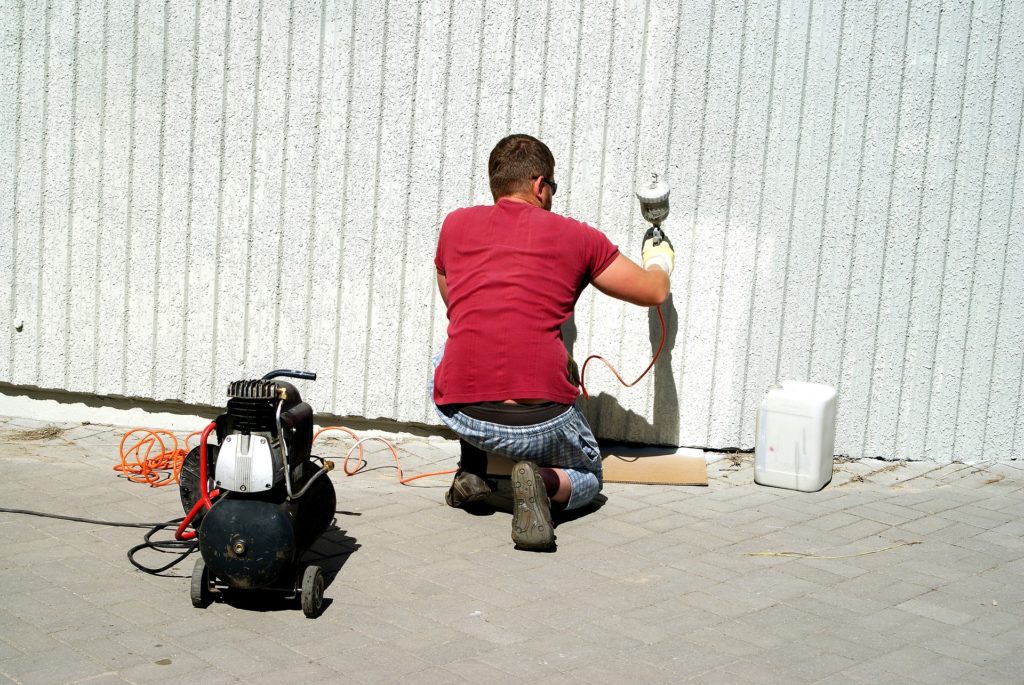
2. Strategically Plan Your Product Line
With those worst-case scenario protection plans covered, we can move on to the more fun aspects of making your tool rental business successful. Like planning your product line.
Start with what you have. What tools and equipment do you already own that is in good enough condition to be rented out?
Then expand to the most common homeowner maintenance, repairs, and renovation projects. What tools will homeowners need to complete their projects? And which of those tools might not be worth purchasing outright?
Here’s a list to get you started:
- Power Drills
- Power Washers
- Various Power Saws
- Drain Cleaners (Snakes)
- Ladders
- Floor Buffers
- Wet/Dry Shop Vacs
- Weed Wackers
- Jack Hammers
- Air Compressors
- Hand Trucks
- Cement Mixers
- Grinders
- Sanders
- Generators
- Water Pumps
- Dehumidifiers
- Augers
You certainly don’t need to carry everything, especially in the beginning. You know what the homeowners in your area need most often. Start there.
3. Price Your Rentals Right
Take a quick trip to Lowes and Home Depot to see what they are charging for tool rentals.
You don’t need to undercut their pricing because you’ll be able to compete on service and condition of tools instead. But shopping your competition will give you an idea of the rates customers are willing to pay. You can also see how much your competitors require for the deposit on each tool.
4. Promote Your Rental Business
First, get your business online. The new generation of homeowners expects to see a website before they make any decisions. So add a page to your real estate website or even create a separate site for your tool rental business. It doesn’t need to be fancy. Just photos of the tools along with rental pricing information and a way to contact you. A Facebook business page will also help legitimize your new business and give you an outlet to start promoting online.
Then make sure all your clients know that you offer tool rentals. If they decide to tackle a home renovation project, you want them to think of you for tool rentals before they think of Home Depot or Lowes. You could email your mailing list a coupon for a discount on a rental, for example. By the way, if you need a little help growing your mailing list to include quality prospects without buying leads or paying for advertising, check out our post on How to Build Your Real Estate Mailing List.
Finally, start casting a wider net. Promote your rental business in your real estate blog posts. You should absolutely be blogging anyway to increase your Google search rank, engage prospects, and earn a little side income. So any time you write about home maintenance or DIY renovations, include a link to your rental page.
You could also use Facebook ads to target locals who have recently purchased a home.
If you want to make your promotion stand out, offer free tool delivery to the job site within a certain zip code or two. You already spend so much time driving your market, so it probably won’t be much of an inconvenience to deliver the tool when you’re in that neighborhood.
5. Reinvest in the Business
The final key to making your tool rental a success is to set aside a percentage of your profits to be used for expanding your product selection.
As your business picks up, you may find customers repeatedly asking for a certain tool. Add it to your inventory. Or stock up on multiples of the same tool if you’re finding it in high demand.
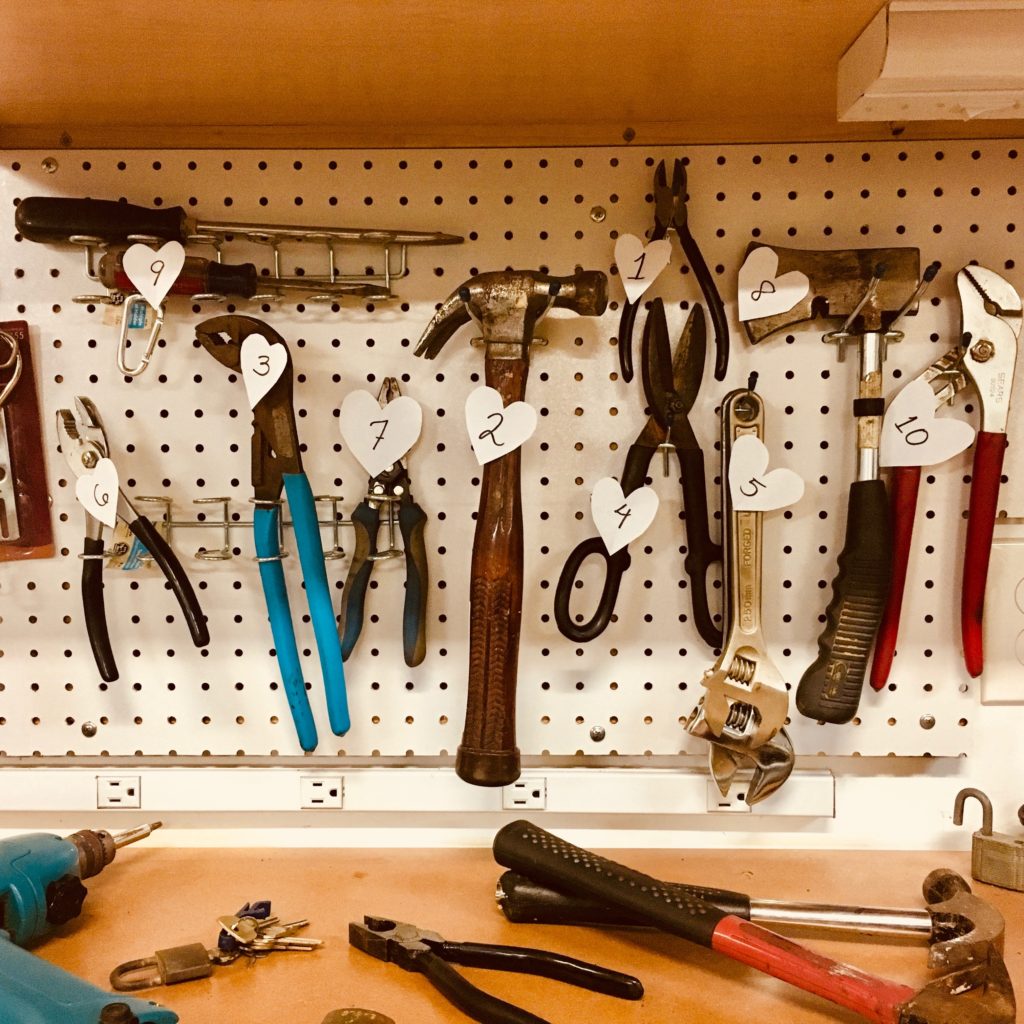
How to Start Renting Out Tools
The best place to start making money renting out tools and equipment is to make sure it’s financially feasible in your local market.
Research the required licensing and permits, paying attention to how much they will cost you. And contact your insurance provider to ask about additional coverage needed and the cost of coverage. And figure out how many tools you would need to purchase (in addition to those you already own) to have a good starter selection.
Also, check out any local competitors you’ll be up against to make sure you can compete.
Assuming the start-up costs are within a range that you can afford and are confident you can earn back given the local demand and competition, start your business by launching an online presence. Add a page to your existing real estate website. Don’t have a website of your own yet? There’s never been a better time to get one. Check out How to Build a Real Estate Website for completely free step-by-step instructions on building your own website. It’s easier than you might expect, and DYI-ing your site will save you thousands of dollars!
With your tool rental business online, you can start driving traffic to your site through the promotional methods outlined above.
Get a Small Win
Great victories are made possible by small wins. Before you move on with the rest of your day, get a small win!
Your small win challenge is to look up the required permits and licenses you would need to start making money renting out tools and equipment. That will help you decide if this income stream is worth pursuing.
All the best to you and your business.
Need More Ideas?
If renting out tools and equipment isn’t right for you, try one of our other 25+ side hustles for real estate agents.

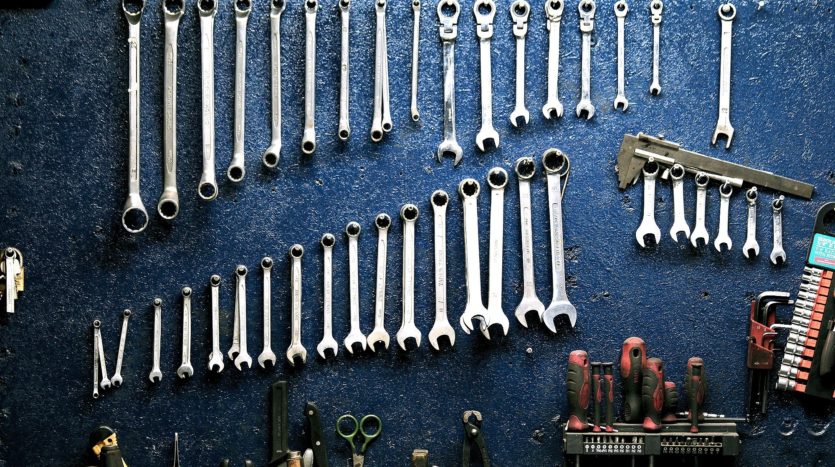

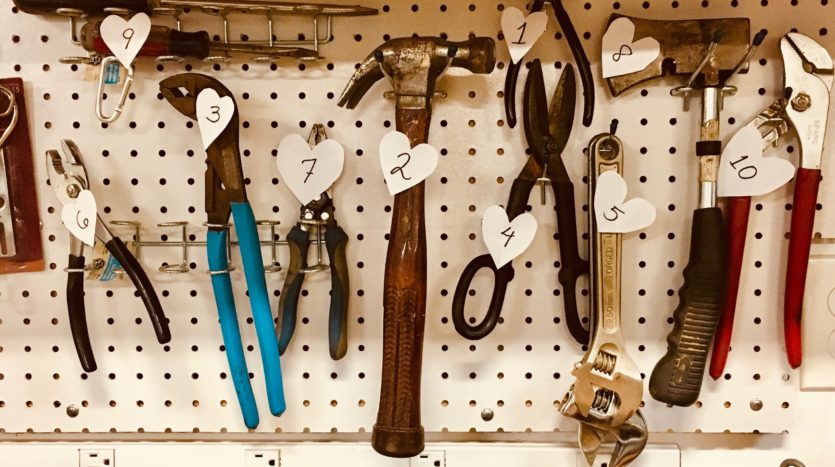
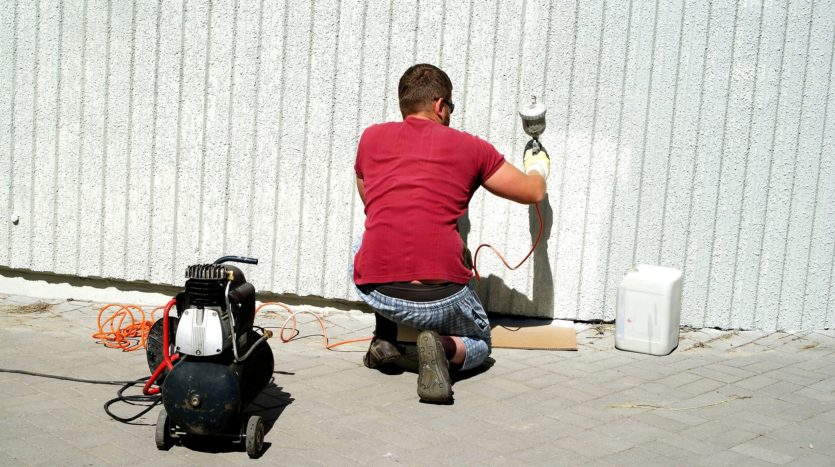







Hi! this is a great article on thissubject appreciate it!